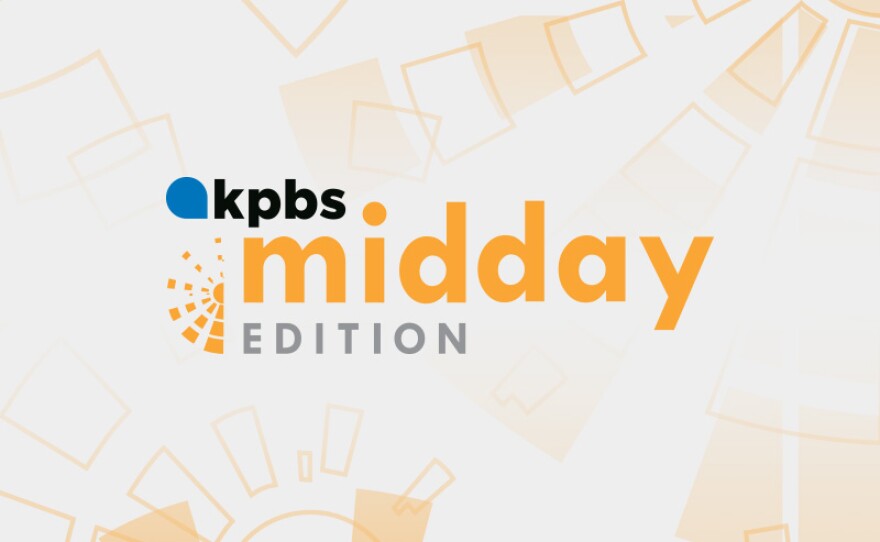They Work On An App. They Deliver Groceries. And Now They Have A Union
Speaker 1: 00:00 Since the pandemic began, workers in the grocery delivery business have been trying to organize to get more protections and benefits workers at the venture capital backed Bay area company, imperfect foods just voted to form a union, but as KQ ed, Sam Harnett reports, their efforts, can't be a model for all on-demand grocery delivery workers. Speaker 2: 00:21 Imperfect foods has always pitched itself as a company, trying to make the world a better place, Speaker 1: 00:26 Want to know an easy way you can stock up on grocery items. You won't find anywhere else on supporting a great cause. It's called imperfect foods. The grocery delivery service on a mission to build a better kinder food system. Speaker 2: 00:38 Food started by letting customers purchase produce. That's not quite perfect and would otherwise end up donated to food banks or even in the trash, the pitch didn't just attract customers, but also employees like Oakland, resident, Christians and ski. For me, one of the big draws of coming to work for this company in the first place was it's explicitly green mission. Also we'd be an employee, not a contractor like grocery delivery workers for Instacart or Amazon owns whole foods. That's like one of the good differentiators right out the gate of imperfect foods versus other companies during the pandemic business has been booming. The company just received another $95 million in venture capital, bringing its total investment up to 229 million. But as the company has grown, so has tensions with workers. There were unorganized. That's what a bug me the most is Gomez is a delivery worker in Sacramento like Zinsky Gomez voted for the union. Speaker 2: 01:31 He says one of the issues was the way the company started pushing drivers to work. Saturdays. The company said Saturdays weren't mandatory, but several drivers I spoke with said it was made clear. They were expected to work. We will sometimes have to go to East Bay, MSF and work or Marcet or rhino. They'll send you over there and, you know, get like a hundred plus boxes. We were getting out late and, uh, we had to be ready to for the next day, there are other issues too. Gomez says they didn't get raises or any extra hazard pay. We didn't get not even a dollar more or anything. So that's what was getting me mad. And a lot of people that we see them growing, but we don't, you know, we don't, we don't grow with them. So about a month ago, employees voted to join the United food and commercial workers union. Speaker 2: 02:19 It was the title election 28 workers in favor 23 against the company, challenged the results with the national labor relations board and LRB, which is a common anti-union delay tactic. The company declined an interview with KQD, but in a blog post, the CEO wrote we can and will do better at collaborating directly with our employees and resolving our issues. This is definitely not the first supposedly ethical company that is funding. You need drive. It happens all the time. Ruth milkman is a labor sociologist at the city university of New York. After a month, the NLRB throughout the company's challenge and certified the union that makes imperfect foods and outlier among venture capital, grocery delivery companies, where most workers don't even have an option to form a union that's because proposition 22 makes it illegal for app companies to classify their workers as contractors Speaker 3: 03:10 Under current law gig workers, if they're independent contractors or, or even if they're misclassified as independent contractors, they're not covered by the national labor relations act at all. So they actually do not have legally the right to collective bargaining. Speaker 2: 03:23 The way prop 22 was written political analysts say it's nearly impossible to overturn, but change could come at the federal level through something called the pro. Yeah. Speaker 4: 03:33 Oh, it would. It would, it would totally wipe out prop 22. Speaker 2: 03:36 It was in LinkedIn's. Don is a professor of labor history at UC Santa Barbara. He says the Breaux act would make it harder for employers to fight union drives. It would also allow contractors to unionize, but because of their razor thin margin in the Senate, Democrats would need every single Senator to support the legislation right now, not everyone is on board, but even if the ProAct doesn't pass Lichtenstein says what just happened at imperfect foods could be helpful for app workers in California who want to Speaker 4: 04:04 Form a union. If a group of workers who do the same work, who are defined as employees unionized, that will have a large impact on, on both the, the sort of the impulse to use for the other workers to unionize and also in a legal and political, uh, realm as well. Speaker 2: 04:22 Department of labor has already openly rebuked proposition 22. And now with imperfect foods, it has an example of workers that a venture back grocery delivery company who are not only employees, but also have a union that was K Q E D Sam Harnett.


